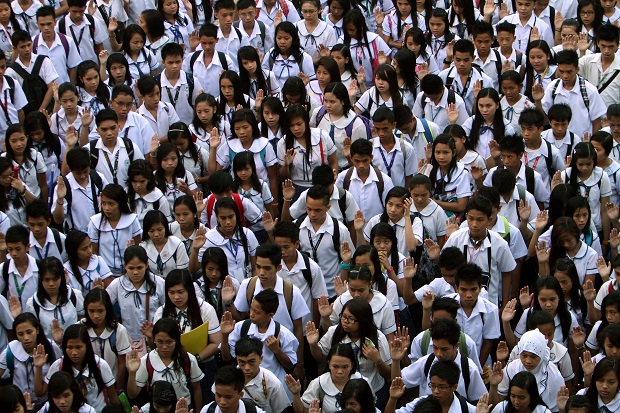What happens to the education system if the enhanced community quarantine (ECQ) continues? This is the question the Department of Education (DepEd) officials and the Senate basic education committee headed by Sen. Sherwin Gatchalian are recently discussing.
One of the solutions being eyed is a contingency plan dubbed as the “continuity learning plan” that will outline the next steps DepEd will take if the ECQ persists, Gatchalian told Inquirer.
According to Gatchalian, officials are still working out the details of the said plan and will release concrete steps by next month.
He added that one of the main points of discussion is whether to delay class opening from June to a later date. “Ang very crucial ngayon ay within April, within this month, titignan natin yung situation para maka-decide tayo kung may pasok sa June or ide-delay ito ng a few months bago tayo magkaroon ng pasok,” the senator said. Gatchalian also pointed out that under the law, class opening extension is only allowed until August.
And even if classes were to resume in June, the senator said the education system will have to make adjustments like limiting mass gatherings to effectively implement social distancing measures.
“Kung magkaka-klase tayo, obviously we need to practice many new mitigating measures, yung social distancing, yung bawal mag gatherings, mag kumpol-kumpol, so how will it affect the teaching of DepEd? Anong klaseng methodology or anong klaseng pagtuturo yung gagawin nila?”

But how will the current system cope with these new rules, if at present pre-COVID-19 conditions, the situation is also grim as it is with students overcrowding ill-equipped classrooms in public schools?
According to 2018 data from DepEd, for the school year 2017-2018, the teacher-student ratio was 1:31 for the elementary level, 1:36 for junior high school level and 1:31 for senior high school level.
At present, the Centers for Disease Control and Prevention’s recommended distance for social distancing is 6 ft. or 2 meters, so for all students to be in the same room, they will have to observe a 2-meter radius space in between them, further limiting the capacity of scarce classrooms.
Higher education institutions, on the other hand, have adopted measures to offset the impact of the COVID-19 and subsequent ECQ that disrupted the current academic semester. Apart from implementing online classroom arrangements, others have altogether halted the school calendar.
Last week, Ateneo de Manila University announced that it will refund its students P20,000 off paid tuition fees and also pass all its students for this semester.
Likewise, the University of the Philippines suspended all online classes while the enhanced community quarantine remains in place until Apr. 30. The university’s officials are also deliberating recommendations to end its semester by Apr. 30.
Header photo courtesy of Inquirer.net
Get more stories like this by subscribing to our weekly newsletter here.
Read more:
What are antibodies? How can it help COVID-19 patients?
PH begins mass testing as COVID-19 cases near 5,000 mark
Manila, Valenzuela start localized COVID-19 mass testing ahead of nat’l gov’t Apr. 14 efforts